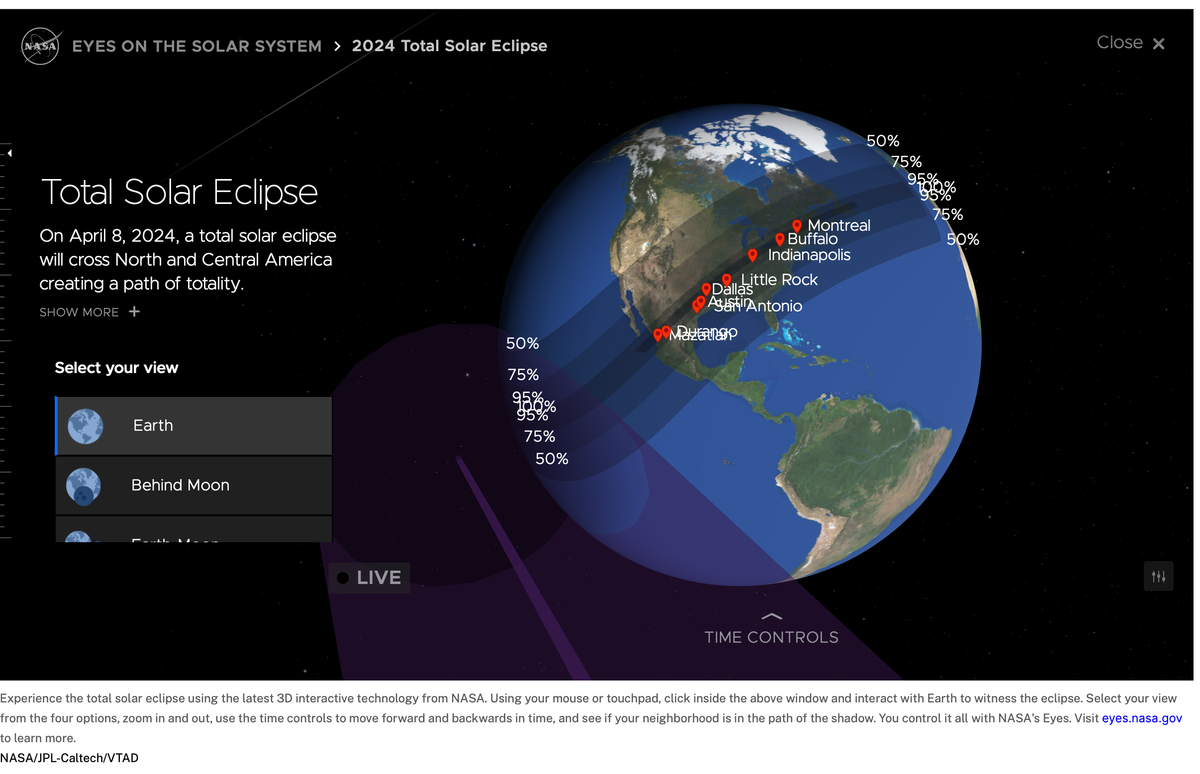Don't look up! Astronomical privacy news in the USA is being eclipsed today.

Good afternoon from sunny DC, a condition I expect that to change dramatically around 3:20 today for people across the United States where the sun is (mostly) blocked by the moon in the first total eclipse since 2017. (NASA has all of the details about where, when, and how to see it.)
I'm writing to share regional news that might be overshadowed by what's happening over us. (No, I can't resist casting a little shade at our nation's media news outlets. Eclipse Day includes an unofficial national moratorium on Dad Jokes.)
As the Electronic Information Privacy Center celebrated on Saturday, the Maryland General Assembly passed the Maryland Online Data Privacy Act, which will now go to Governor Wes Moore for his signature.
Another state finally moving to protect our privacy rights is a moment to celebrate!
But wait: there's more.
On Friday, Punchbowl News broke the news that Senate Commerce Committee Chair Maria Cantwell (D-WA) and House Energy and Commerce Committee Chair Cathy McMorris Rodgers (R-WA) would introduce a new bipartisan, bicameral bill that would, if enacted, codify baseline data privacy rights in the United States of America.
The American Privacy Rights Act (APRA) is the big, comprehensive swing at tackling one of the most important technology policy issues of our time – or heck, biggest policy issues, period.
The excerpted overview, which I've bolded below, and section-by-section summary of the bill released by Congress show why:
This measure would establish national consumer data privacy rights and set standards for data security. The bill also would require covered entities to be transparent about how they use consumer data and give consumers the right to access, correct, delete, and export their data, as well as opt out of targeted advertising and data transfers. The measure would set standards for data minimization that would allow companies to collect and use data only for necessary and limited purposes and prohibit the transfer of sensitive covered data to third parties without the consumer’s affirmative express consent. The Act would prohibit the use of covered data to discriminate against consumers and provide consumers with the right to opt out of the use of algorithms for consequential decisions. The Federal Trade Commission (FTC), State attorneys general, and consumers could enforce against violations of the Act.
If you're not up for reading the entire 53 discussion draft, Jed Bracy wrote a helpful analysis of the political landscape, legislative history of privacy bills, and prospects for the bill by at the International Association of Privacy Professionals.
There's going to be a huge fight over this bill when the industries and corporations that profit from the absence of baseline privacy rights in the United States organize to fight against it.
Law enforcement agencies, intelligence services, and the people who have access to their analyses may also quietly oppose the legislation, if they assess it will reduce their ability to surveil billions of people through digital platforms and devices.
Against that will be the public benefit of finally enacting a strong national data protection law backed by a strengthened regulator able to protect and uphold codified rights.
Get ready for a wave of fear, uncertainty, and doubt to start rolling through news feeds about this legislation. .deity help us if online privacy becomes politically polarized in an election year, or somehow becomes a point of consensus across our yawning partisan divides.
For privacy hawks like me, it's the moment we've been waiting for over decades. There's a good bill. For everyone else, it's an opportunity to learn who your elected officials are in state and federal government and contact your Members of Congress to tell them you support baseline privacy protections in the United States.
P.S. Remember NOT to look right at the sun over the next our on the East Coast of the United States – except for the brief moment of totality – if you aren't wearing special glasses or using a telescope, colander, note cards, or pinhole projector.



